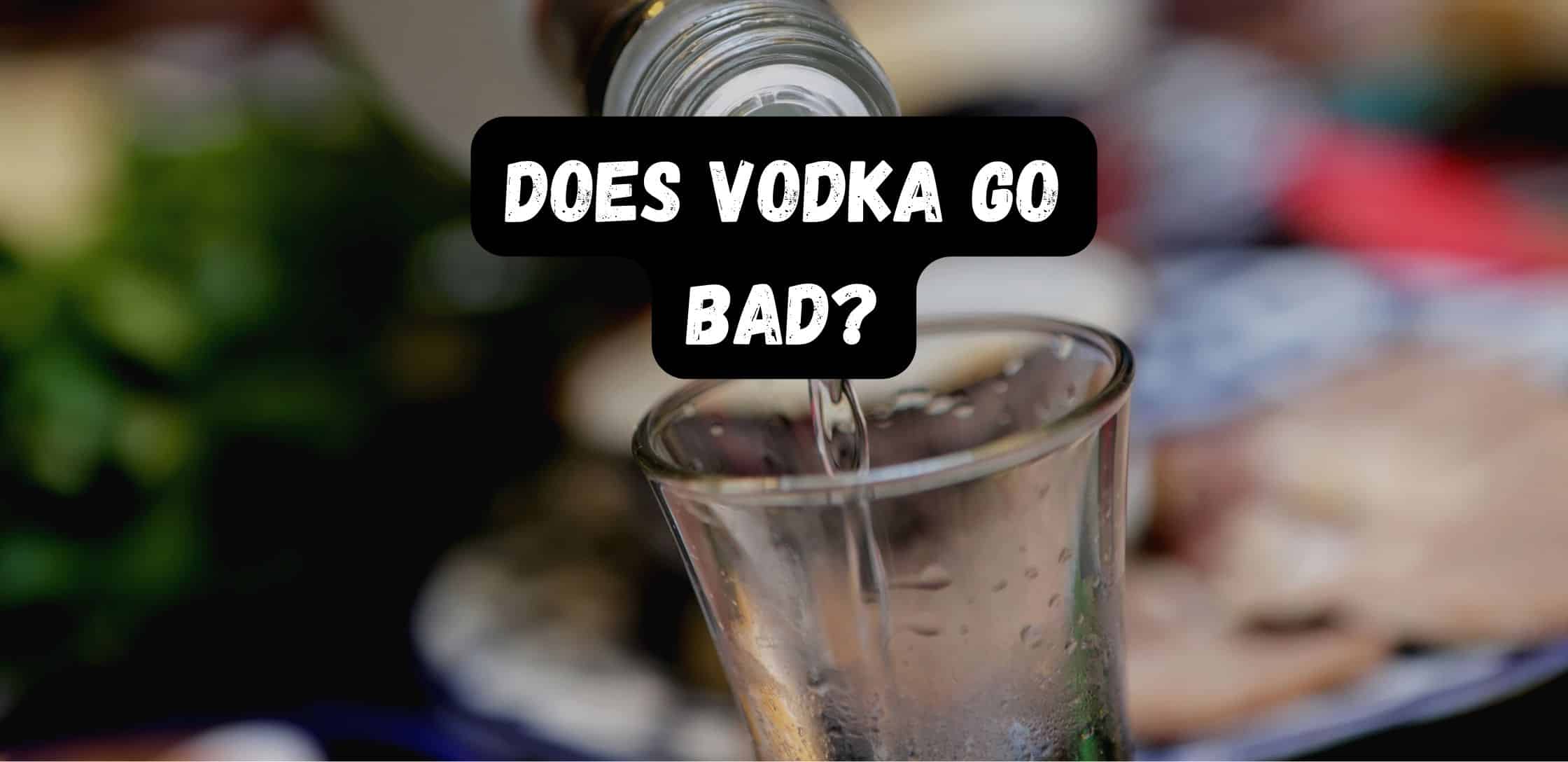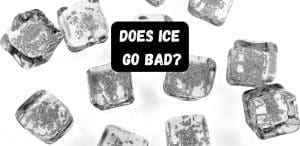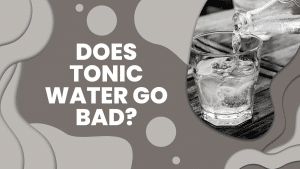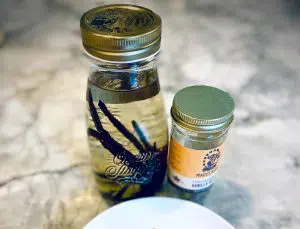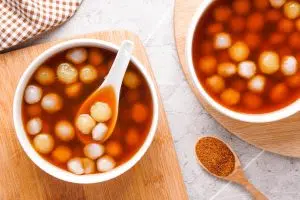Does Vodka Go Bad?
Important Note: When you buy through our links, we may earn a commission. As an Amazon Associate we earn from qualifying purchases. Content, pricing, offers and availability are subject to change at any time - more info.
Vodka is a clear, colorless distilled liquor with an ABV (alcohol by volume) that is relatively high, between 40 and 55%. Vodka comes from the Slavic word “voda” meaning water. While Russia and Poland are synonymous with vodka, as they were the earliest distillers, makers, and drinkers of vodka, there is a whole “vodka belt” which covers a large portion of northern and eastern Europe, including Sweden, Norway, Finland, Iceland, Latvia, Estonia, Lithuania, Ukraine, and Belarus to name a few.
Vodka, when first created didn’t have such a high alcohol content and was most commonly used for medical purposes or as a cleaner. Vodka is essentially just water and ethanol and can be made from corn, grains, sorghum, rice, rye, molasses, wheat, fruits, and of course potatoes.
Nowadays vodka is one of the most popular cocktail drinks and is drunk as a Cosmopolitan, Bloody Mary, Black Russian, White Russian, Moscow Mule, and Vodka Martini to name just a few. Vodka is traditionally sipped neat and served cold, not just chilled. Vodka is also a popular drink to do a shot with. Some of the most popular vodka brands today are Absolut, Tito’s, Smirnoff, Belvedere, Grey Goose, SKYY, Cîroc, Ketel One, and Stolichnaya to name a few.
Many people assume that Russia is the biggest or even only producer of vodka, but interestingly, Russia is just one of many countries that makes and manufactures vodka. In fact, Poland is considered to be home to some of the best vodkas in the world. USA, Netherlands, Sweden, and France are some of the other countries with popular vodka brands.
How Long Does Vodka Last?
Seeing how popular vodka is, it is likely that most people have a bottle in their bar or pantry. Most home bars will have a minimum of one popular vodka brand. Vodka is also a popular drink among youngsters and women, this is because you can make some really delicious cocktails with vodka. Vodka also has some of the fewest calories, so most people who are watching their weight, opt for neat vodka. So, if you have a bottle that has been lying around in your bar for a long, is it still safe drink? Can vodka go bad? How long can you keep vodka?
- Vodka does not go bad. It can last for a very long time without spoiling. But it can start tasting weak.
- An unopened bottle of vodka can last in your pantry indefinitely without spoiling or deteriorating in quality.
- An opened bottle of vodka will last for decades even if not refrigerated.
- The important thing to remember is that alcohol evaporates faster than water, so if you don’t close your bottle of vodka properly, or if it has some kind of weak stopper or a cork lid, then the vodka will start evaporating. But this is not a fast-acting process. This is going to take decades.
- The vodka will over time only get weaker, and taste and be less potent.
- The only time vodka can possibly spoil is if the alcohol proof goes way down, resulting in yeast and bacteria. On the rare occasion this happens, consuming bad alcohol will give you severe alcohol poisoning.
- There is no exact number or date to determine the shelf life of vodka but rest assured that the bottle you have at home is most probably good.
- Vodka can last anywhere from 10 to 20 years to indefinitely.
| Type of Vodka | Pantry/Bar Cabinet | Fridge/Freezer |
| Vodka, opened | 10-20 years | Indefinite |
| Vodka, unopened | Indefinite | Indefinite |
How Best To Store Vodka?
- Vodka needs little to no upkeep. It is one of the easiest things to store and maintain. It pretty much takes care of itself.
- If you have a bottle of vodka that has not been opened yet, it can be stored in the bar cabinet or pantry. It does not necessarily need to be refrigerated. Store the vodka in a cool, dry place, away from direct heat and sunlight.
- If you do have a bottle of vodka that you have opened, it will be fine outside, but for the best taste and to get the most out of it, you need to refrigerate it.
- Vodka can also be kept in the freezer. It keeps the vodka very cold, which further enhances the vodka-drinking experience. Do not worry about your vodka freezing as vodka freezes at -16 degrees F or -27 degrees F, which are temperatures freezers at home don’t reach. Keeping your vodka in the freezer just makes it deliciously, icy cold.
- The cardinal rule about storing vodka is to always keep the bottle tightly closed.
- Some bottles come with cork stoppers, while others have plastic or metal twist-on caps. Whatever kind of vodka you are dealing with, keep it closed. This is because vodka evaporates faster than water, which means your vodka is going to be slowly and steadily evaporating if not sealed nice and tight.
- Another important thing to remember is to never keep your vodka closed with a pouring cap as it is open. Most bars and pubs use this to make it easy to measure and pour out the vodka. This is not advisable at home.
- Vodka is now available as premixed cocktails and spritzes than can be bought in cans or bottles. These have a much shorter shelf life due to the fruits or flavorings added to them. Unopened cans or bottles of vodka cocktails can last for about a year or two.
- If they are opened, they should be consumed almost immediately or they should be refrigerated. The cocktail is not going to go bad, but it is going to lose flavor and coloring and will eventually become flat and unappetizing. So, it is best to throw out opened, undrunk cans of premixed vodka drinks.
How To Tell If It Is Time To Toss Your Bottle of Vodka?
- As mentioned earlier, it is going to take a lot for your vodka to actually go bad. What is more likely is your vodka getting old, losing flavor, and becoming weak.
- When the alcohol level in the vodka comes down, it can get spoiled with bacteria and yeast. This is the time to throw that bottle out and get a new one.
- The first thing to watch out for is to make sure the vodka bottle is closed. If you have left the vodka open or not closed properly, it is best to toss it. Again, your vodka is not spoiled, but it might have external contaminants or pollutants.
- Your vodka is going to taste almost the same for close to 20 years, but if you find any noticeable difference in smell or taste then your vodka is properly losing potency. Vodka mostly smells of ethanol. If there is any kind of “off” smell or taste or if there is little to no smell, then your vodka is old. It will still be consumable, but it won’t have the taste of vodka you are used to.
Vodka is the drink that is probably going to last forever. Nothing short of external contamination is going to make it undrinkable. So, pop your favorite vodka in the freezer and enjoy it for as long, long time.
